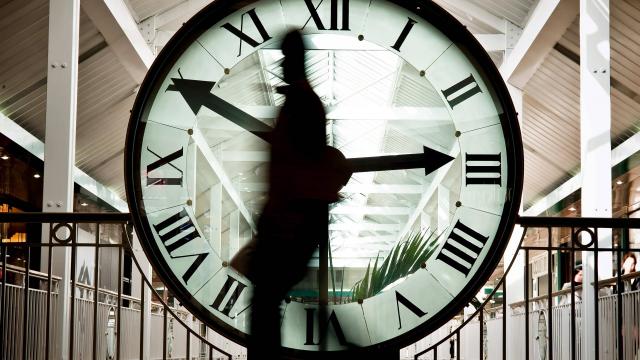Clocks Change. Tonight, we move to winter time!

In the night from Saturday to Sunday, France and other countries of the European Union will revert to winter time. The good news is we gain an hour of sleep but this change continues to generate criticism.
Sunday at 3am (summer time), it will be 2am (winter time) in France and in the countries of the European Union. Since 1998, date of transition to the summer time on the last Sunday of March and the winter, the last Sunday of October, are indeed harmonized within the European Union . Although Balearic islands have decided to make the resistance wanting to stay in summer time ..
Passage à l’heure d’hiver dimanche 30 octobre 2016 https://t.co/21FSxowYOm pic.twitter.com/aqZtsrAfQZ
— service-public.fr (@servicepublicfr) October 28, 2016
In France, the system which has existed since 1976. Three years after the oil crisis, the idea was to achieve energy savings by matching business hours with sunshine to limit the use of artificial lighting. According to the Ministry of Environment , the time change has saved 440 GWh in lighting in 2009, the consumption of about 800,000 households. But however the time change continues to draw criticism.
Beware of accidents and burglars
The move to winter time would cause an increase of 63% of accidents involving pedestrians,according to the Belgian Institute for Road Safety (IBSR). The police and gendarmerie also invite the vigilance because winter time arrange burglars: At a glance, late afternoon, they see if a house is on and so if it is busy.
But the criticism that comes up most often is that the impact of the time change on health. “The scientific literature shows that the time change can induce sleep disorders, alertness, of road accidents , depression, suicide, and myocardial infarction “ , thus wrote Friday Inserm in a statement.
About a week to adjust
“The transition is more disturbing in winter at bedtime” , he says. According to Claude Gronfier, researcher at Inserm, “change of time between other causes of sleep disorders and attention. Children and the elderly are particularly affected and take about a week to adjust to new schedules “ .
But as Claire Leconte, chronobiologiste interviewed by the site Allo doctors , this transition to winter time eventually disrupt “very little” our biological rhythm. “For there is a shift of one hour only. This change is also more advantageous for us as we approach the time of the sun. Moreover, this change is reflected positively on the lack of sleep”. On Twitter, netizens are excited at the idea of sleeping an extra hour!
vivement qu’on passe à l’heure d’hiver, 1h de sommeil en plus c’est pas négociable
— maud (@maudrchl) October 18, 2016
“Get the sleep time missed”
Claire Leconte continues: “The nights are longer, so it is easier to recover the sleep time missed, unlike the DST change. The summer schedule shift us away from the sun clock two hours. The days are getting longer. Our lifestyle shifts. The evening outings, for example multiply. The sleep time is delayed. The time spent sleeping is then reduced which results in a de-synchronization of the internal clock. ” Summer time will return in 2017 on the night of March 25th to 26th.
Enjoyed this? Get the week’s top France stories
One email every Sunday. Unsubscribe anytime.


